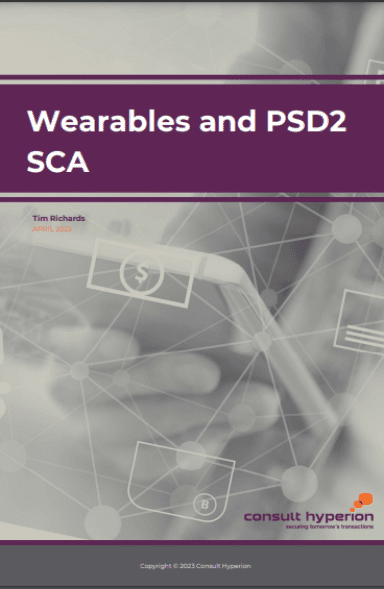
How payments firms can build compliance monitoring that delivers
As FCA expectations rise, a tailored compliance monitoring programme is essential for payments firms to manage risk, ensure accountability, and support sustainable growth.

As FCA expectations rise, a tailored compliance monitoring programme is essential for payments firms to manage risk, ensure accountability, and support sustainable growth.

Ten key regulatory developments merchants must track in 2025–26, from fraud liability to fee reform, stablecoins, and accessibility.

The UK’s new stablecoin rules offer regulatory clarity for issuers, setting the stage for future integration into mainstream payments.

The UK’s new crypto regulation redefines compliance for payments firms, requiring FCA authorisation and raising standards across the sector.

Your quarterly overview of the key regulatory changes impacting payments—what’s happening, what’s coming, and what actions to take

The PSR’s upcoming consultation on the Reimbursement Claims Management System (RCMS) explores if and when its adoption should be mandated for payment firms.

How UK payments regulation can adapt to support innovation, investment, and growth while managing emerging risks.

The EBA’s redefinition of e-money challenges traditional models, raising regulatory uncertainties and requiring compliance reassessment.

In 2025, payments firms must prioritise safeguarding funds, expanding open banking, and preparing for stablecoin regulation to stay competitive and compliant.

The Economic Crime and Corporate Transparency Act 2023 holds businesses accountable for fraud unless they prove strong prevention measures.

Virtual IBANs streamline payments but pose AML risks, demanding stricter oversight from PSPs.

The FCA’s safeguarding reforms introduce stricter compliance requirements for payments and e-money firms, aiming to enhance consumer protection and operational resilience.

The Digital Assets Bill introduces opportunities and challenges for PSPs, from stablecoin clarity to operational overhauls, as firms navigate legal uncertainty and evolving compliance standards.

The PSR’s Dan Moore highlights the importance of sustainable commercial models and fair competition to drive innovation and investment in the UK payments sector.

Do the FCA’s safeguarding plans need alignment with the National Payments Vision to ensure strategic, cost-effective, and consumer-focused reforms?

UK crypto regulations will reshape compliance for payment firms, with implementation by 2026.

Industry leaders discuss the evolving innovations and challenges shaping the future of payments.

2024 reshaped payments with instant payment mandates, crypto regulations, and enhanced consumer protection, driving innovation and security.

Learn how payments firms are tackling the challenges of the Consumer Duty, from compliance gaps to improving customer outcomes and governance.

The FCA’s new safeguarding reforms strengthen consumer protection in payments and e-money sectors. This article outlines key changes and steps firms must take to comply.

The PSR’s new refund rules strengthen fraud protection, but concerns remain over the reduced compensation cap and evolving scam tactics.

The FCA is consulting on new safeguarding rules for payment and e-money institutions to improve fund protection and compliance.

New rules mandate automatic reimbursement for APP fraud victims, raising concerns about industry costs and fraud exploitation.

The PSR has lowered the APP fraud reimbursement cap to £85,000, raising concerns over fraud prevention

The new Reimbursement Claims Management System (RCMS) aims to simplify APP fraud claim processing, enhance PSP cooperation, and ensure adherence to updated compliance standards

The PAY360 State of the Industry 2024 survey reveals key trends, challenges, and opportunities in the payments sector, emphasising the need for technological investment, enhanced security, and regulatory adaptation.

Regulatory changes in BNPL, cVRPs, and digital wallets aim to boost e-commerce innovation and competition while safeguarding consumer protection and market stability.

The move to ISO 20022 brings benefits like enriched data and improved fraud prevention, requiring a strategic approach and decisions between building in-house solutions or partnering with vendors.

Swift’s updated CSP and IAF are essential for ensuring robust cybersecurity and compliance across the global banking community.

Enhancing the FCA’s complaints reporting process aims to swiftly identify consumer harm, improve regulatory compliance, and streamline operations for financial firms.

The FCA’s controversial ‘name-and-shame’ policy has sparked significant industry backlash, raising concerns over market stability and reputational damage.

The Consumer Rights Act 2015 aimed to unify UK consumer protections, but rapid digital advances in banking have necessitated a stronger focus on fraud protection.

The FCA’s final quarterly authorisations metrics for 2023-2024 reveal high efficiency and effectiveness in meeting statutory targets, though some areas require better application quality.

The Payment Systems Regulator (PSR) highlights the need for improved governance and collaboration to drive innovation and address regulatory challenges in the UK’s payments industry

Discover how programmable money could revolutionise finance with automation and efficiency, while exploring the ethical dilemmas it poses around privacy and potential misuse

IOSCO’s new policy recommendations aim to create a unified global framework for regulating digital assets and cryptocurrencies, enhancing market integrity and investor protection.

The UK and EU are set to implement Confirmation of Payee (CoP) and Verification of Payee (VoP) by 2025 to enhance payment security by verifying account details to reduce fraud and errors.

Initial assessments of the FCA’s Consumer Duty show that while financial firms have made positive strides in improving practices for consumer outcomes, further improvements and deeper integrations are necessary.

How regulatory reforms and increased capital can drive UK fintech expansion One of the first questions any fintech founder or investor asks is how it will be regulated. Regulation affects

The UK and EU payments sectors continued to draw increasing regulatory scrutiny throughout 2023. Indeed, the need to deliver compliance with new regimes, such as the consumer duty in the UK, required a great deal of firm’s attention and resources throughout the year.

This article was originally published by leading bank orchestration platform Numeral and recently featured in the Payments:Unpacked newsletter from Mike Chambers – subscribe for free at: www.payments-unpacked.com.

The Payments Association is pleased with the declaration released from the recent summit on artificial intelligence (AI) at Bletchley Park, which saw global leaders, tech executives, and academics address the challenges and advancements of the technology.

Join our Financial Services Regulatory Group experts on Tuesday, 3 October 2023 as they discuss recent developments about the Mansion House Reforms presented by the Chancellor in July 2023 and what

Eduard Stringer, director of product management for Europe at FIS, explains why he believes the EU needs to step up and ensure regulation supports the needs of payments businesses and consumers.

With uncertainty over the future of regulating BNPL products, Payments Review examined the current status, the impact of any legislation and what protection three of the UK’s largest providers have in place.

Latest data shows that the regulator’s authorisation of payments and e-money firms is lagging so far behind, it’s rated red against statutory targets.

DIGISEQ recently commissioned Consult Hyperion to do a whitepaper, podcast and webinar on SCA PSD2, in this piece we address the issue of SCA (Strong Customer Authentication) in Passive Wearables.

DIGISEQ recently commissioned Consult Hyperion to do a whitepaper on SCA PSD2, in this piece we address the issue of SCA (Strong Customer Authentication) in Passive Wearables. Rules are in
The Payments Association
St Clement’s House
27 Clements Lane
London EC4N 7AE
© Copyright 2024 The Payments Association. All Rights Reserved. The Payments Association is the trading name of Emerging Payments Ventures Limited.
Emerging Ventures Limited t/a The Payments Association; Registered in England and Wales, Company Number 06672728; VAT no. 938829859; Registered office address St. Clement’s House, 27 Clements Lane, London, England, EC4N 7AE.







Log in to access complimentary passes or discounts and access exclusive content as part of your membership. An auto-login link will be sent directly to your email.
We use an auto-login link to ensure optimum security for your members hub. Simply enter your professional work e-mail address into the input area and you’ll receive a link to directly access your account.
Instead of using passwords, we e-mail you a link to log in to the site. This allows us to automatically verify you and apply member benefits based on your e-mail domain name.
Please click the button below which relates to the issue you’re having.
Sometimes our e-mails end up in spam. Make sure to check your spam folder for e-mails from The Payments Association
Most modern e-mail clients now separate e-mails into different tabs. For example, Outlook has an “Other” tab, and Gmail has tabs for different types of e-mails, such as promotional.
For security reasons the link will expire after 60 minutes. Try submitting the login form again and wait a few seconds for the e-mail to arrive.
The link will only work one time – once it’s been clicked, the link won’t log you in again. Instead, you’ll need to go back to the login screen and generate a new link.
Make sure you’re clicking the link on the most recent e-mail that’s been sent to you. We recommend deleting the e-mail once you’ve clicked the link.
Some security systems will automatically click on links in e-mails to check for phishing, malware, viruses and other malicious threats. If these have been clicked, it won’t work when you try to click on the link.
For security reasons, e-mail address changes can only be complete by your Member Engagement Manager. Please contact the team directly for further help.